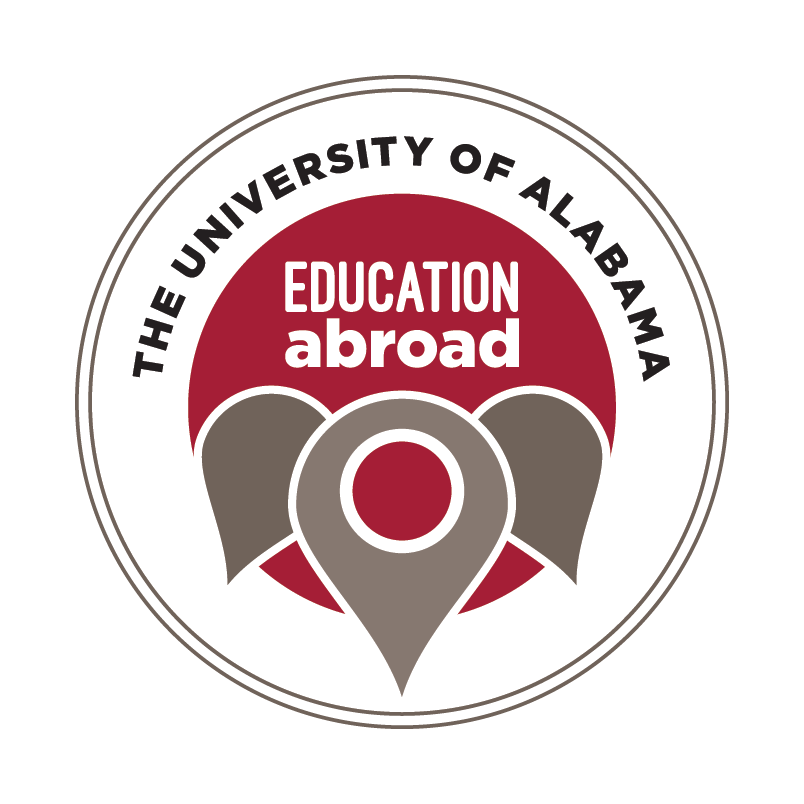I’m finally home from my three-week study abroad trip to Belgium, and although it’s great to be back, I can’t help but miss the routines and memories I made while abroad. On the last full day of the program, we traveled by metro-our last metro ride, a much more bittersweet moment than you would expect- to Grand Place, a large square in Brussels full of touristy vendors and gorgeous architecture. This was the first place our instructor took us to on our first day, and now on the last day, we were using Grand Place to say goodbye to Europe as a whole.
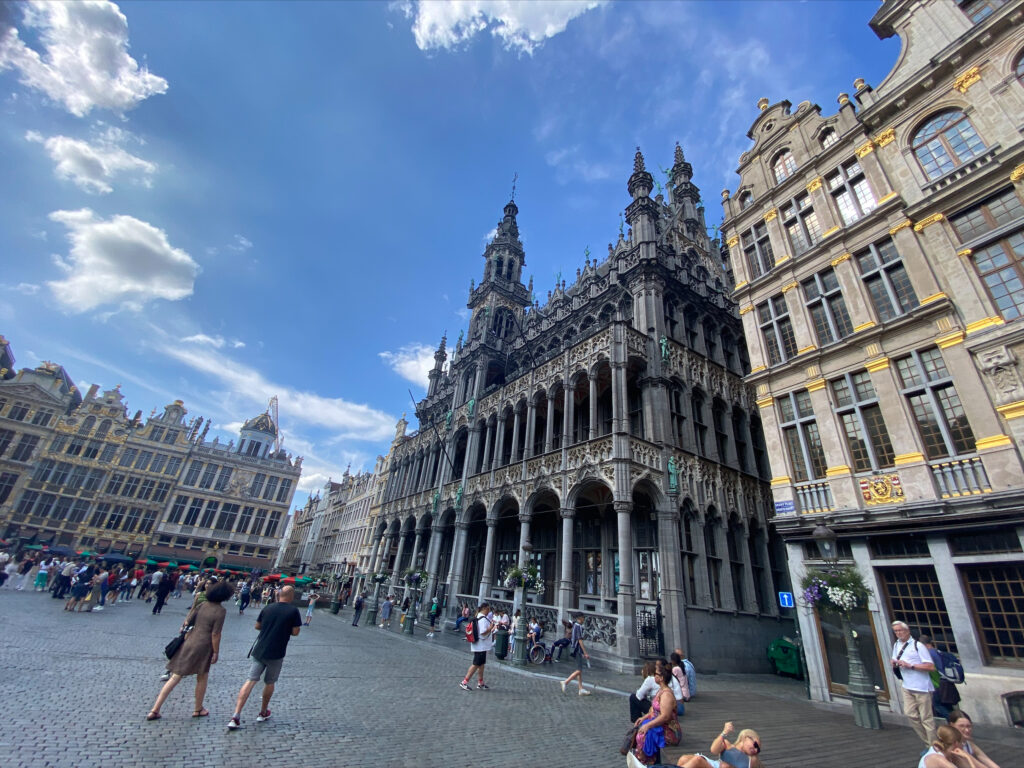
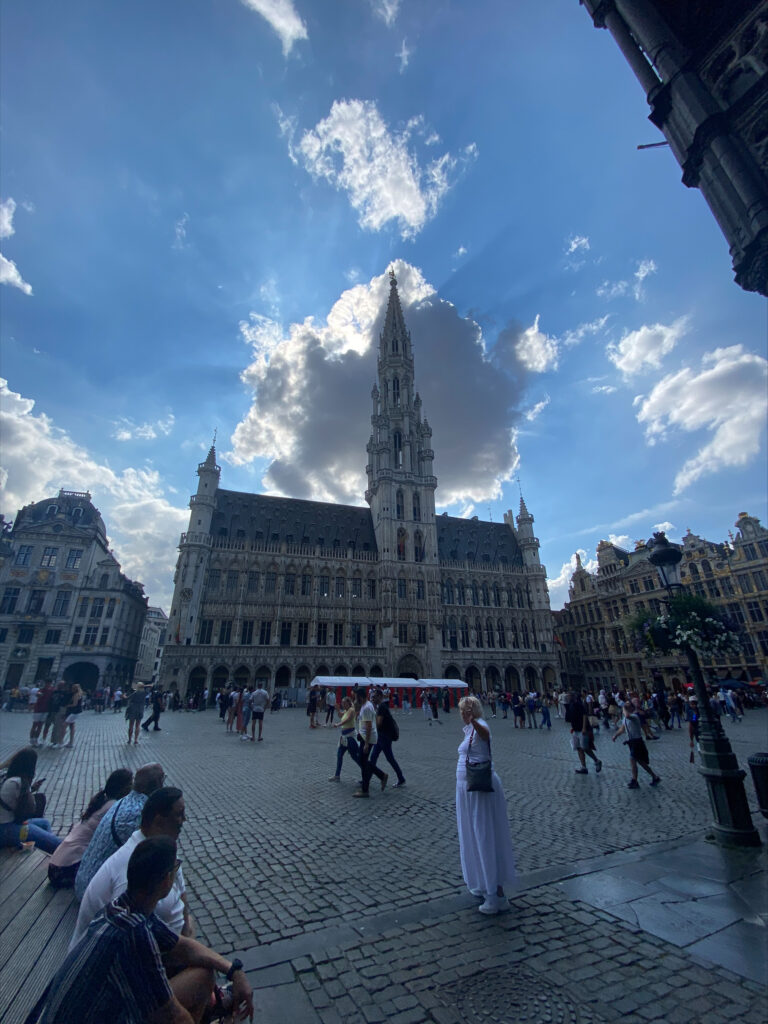
After we said our goodbyes to our home of the last three weeks, we trudged begrudgingly back to the hotel to return our metro cards to our instructor and say goodbye to each other. On the way, I said a hasty goodbye to the Carrefour Express convenience store adjacent to our hotel, which still stands as the thing I miss the most from Europe. I would give up Walmart, Target, and the Dollar Store if it meant we could have Carrefour Expresses here. The food is just that good.
The next morning, I was marching through European Union TSA (I don’t know what they call it), already feeling very American again as I sported a toothpaste stain on my $2 t-shirt, and I stopped to take my last picture of Belgium through the airport window.
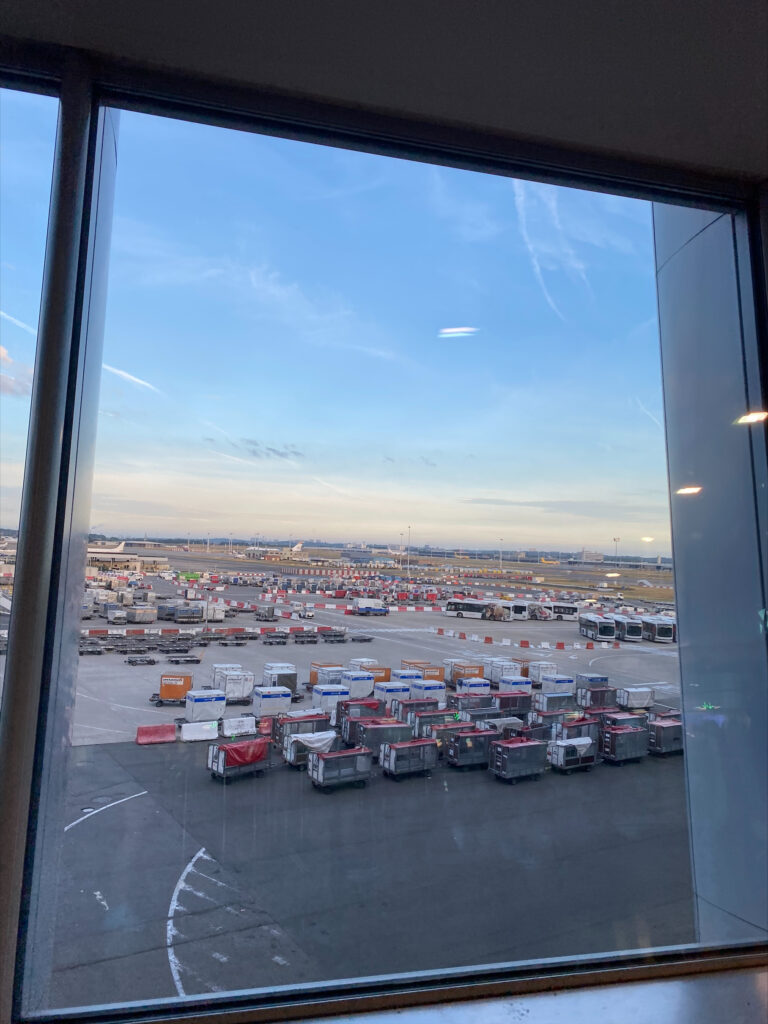
Not exactly a breathtaking final look, but it tugged my heartstrings nonetheless. All of my travels across Europe had been over train or bus and mostly through EU countries, so I was anticipating a much more hard-core, TSA-like search in the airport. Surprisingly, my shoes stayed on, and I was barely glanced at as I passed through the metal detectors. Most importantly, no one confiscated the souvenir chocolates in my backpack, which I knew I was allowed to have, but I was still nervous that they would be taken. On the secured side of the airport, I had my last pain au chocolat and an amazing ham and egg sandwich, and I bought more souvenir chocolates in a final effort to rid myself of Euros. My stomach full of a hearty Belgian breakfast and my backpack increasingly full of chocolate, I stepped on my 7 hour flight to America.
My first big shock was the reminder that sales tax is added after the displayed total, instead of being factored in already like it is in Europe. The lunch shown below-although my jet lag told me it was dinner – was listed at $17. I kid you not, when the final checkout page rang it up as $19.50 instead, my jaw dropped, and I looked like I had been deeply betrayed. In truth, I was just very tired and had forgotten that we like to make shopping extra confusing in America. I very much miss automatically factored sales tax.
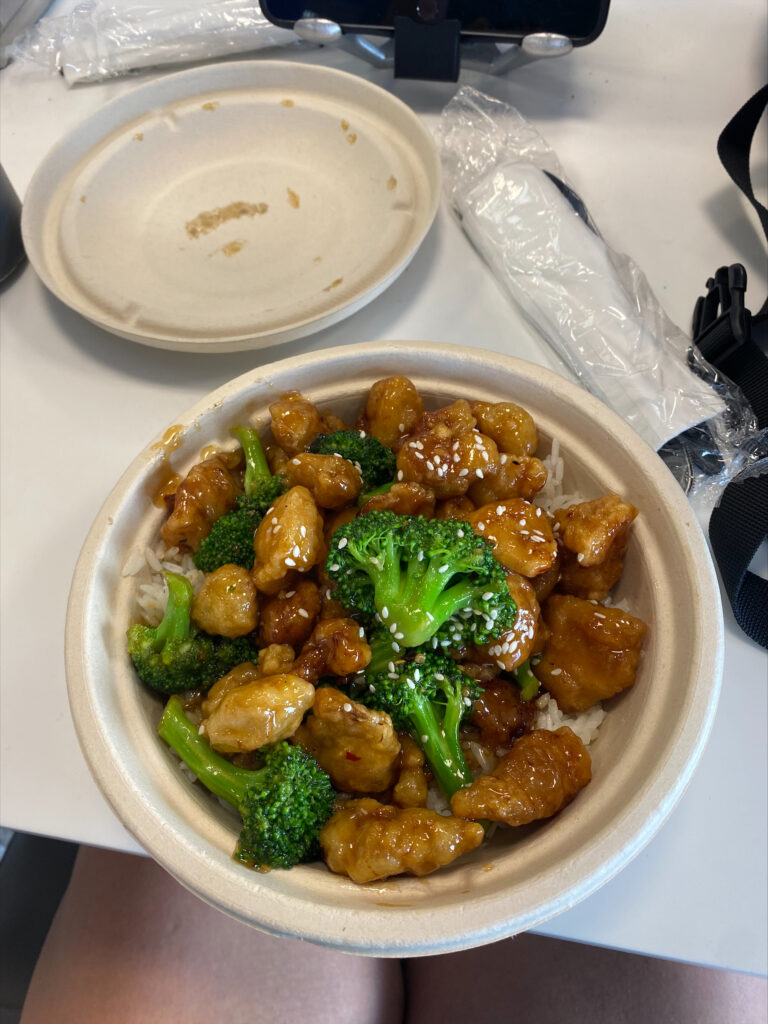
I was also shocked upon entering a bathroom and seeing English signage again. It felt like learning how to read for the second time, no longer being forced to scan every sign I saw with the Google Translate app. I sometime miss the French though. It was like a fun guessing game.
I didn’t even realize how lax the security check in Belgium had been until I had to enter TSA for my connecting flight to Houston, and all of a sudden I was taking off my shoes, triple checking my bag, watching a cat on a leash go through the metal detector. It was crazy. I have never been so disoriented in a TSA line in my life. I was dumping out water in the trashcan directly before the conveyor belt and riffling through my bag on the floor to find my separate liquids quart. I can’t imagine how international travelers feel when they enter that for the first time. Luckily, I made it through, along with all of my chocolate, and I eventually made it all the way home.
Since being back, I have noticed very little culture shock, likely because Belgium is a pretty neutral place, or as my instructor put it, “Europe lite.” I mainly find myself missing my routines: waking up, cooking breakfast, walking to the metro station, wandering around or going to class/ a museum, finding a cheap but somehow amazing sandwich for lunch, shopping at the blessed Carrefour Express for groceries, and then cooking a late dinner. I do not miss being charged to use the restroom or being charged for water, and it was difficult to break the habit of refilling my Hydro Flask from the tap. I also missed driving way more than I thought I would, even though I am now wildly impressed by and jealous of Europe’s mass transit systems.
I have come away from this trip with several lessons. Primarily, I have been forced to broaden my perspective of the world. Living on a relatively isolated continent, we often get stuck in the perception that the American way is the “best” way. It was interesting to see how, in Europe, where countries are close geographically and, in the case of the EU, politically, the different countries tend to learn from each other more. As I said before, I was amazed by the ease, affordability, and efficiency of mass transit across Europe, as one card could give you access to virtually constant rides on the metros, trams, and busses. The implications for personal budgeting as opposed to a car, as well as the implications for the environment, truly highlight this as a system that I think America should take notice of. Additionally, I was able to see many things that we take for granted in the US, such as free bathrooms and water and actually efficient central cooling systems. I also saw the costs for convenience that exist in a greener “future,” as environmentally-mindful systems across Europe constantly had me sitting in darkness in the bathroom, frantically trying to trigger the motion sensor, or forgetting my reusable shopping bag meant carrying home groceries across my arms. I was also amazed by the differences in customer service, as servers in Europe are paid liveable wages rather than relying on tips. While I would much prefer to be a server in Europe, it was sometimes less than desirable to be a customer in Europe, as servers were often rude or inefficient, with little care for the service they provided. Sometimes the “future” of innovation can mean inconveniences for the consumer, but it’s interesting to weigh these inconveniences against the benefits- environmental safety, workers’ rights- and gain new perspective on the future of politics.
My final advice for anyone studying abroad in Europe would be:
-Pack a reusable water bottle. You will save tons of money (2-3 euros per restaurant), and the tap water is heavily regulated and safe to drink.
-Don’t wait until you’re running out of money to start cooking more. I originally cooked just breakfast and dinner, and it wasn’t until my last week, when I realized how much money I was spending, that I started cooking lunch too. Eating out is an important part of the experience, but definitely plan to save that expense for special restaurants and experiences- not just variations of the same generic pub- when you can.
-If there’s an important hobby you enjoy, keep doing it abroad. I love to exercise and do so 4-5 times/week when my schedule allows. Our hotel had a fitness room, but I had already convinced myself I would be too busy to work out, so I didn’t go in there until the last week when I finally realized how much I was missing it. It only took an hour of my time, and I felt SO MUCH better- the most clarity I had felt in weeks. Had I just started exercising a couple of times/ week the first week, I think I could’ve enjoyed the entire experience a bit more, with less stress and fatigue.
-Start travelling early. I did travel within Belgium a bit, but not until about halfway through the second week, and I only ended up travelling to two cities within Belgium that weren’t part of the program. Even though it takes some time to become acclimated to the transportation systems and the program itself, I would recommend travelling as soon as you can, so you can avoid our most common phrase of the final days of the program, “This was fun, but I wish we had travelled more.”
-Try to learn a bit of one of the predominant languages for the region you’re travelling to. I spent around 8 months learning French on Duolingo in preparation for this trip, and while I am by no means fluent- I often responded in Spanish by mistake- it made reading signs much, much easier. I only really had to pull out my Google Translate scanner when I was in predominantly Dutch or German-speaking regions because I was usually able to at least garner the main idea from French signage.
If you’re travelling soon, I wish you the best of luck and safe travels. If you’re still deciding whether to study abroad or not, DO IT. Your life will be all the better for it, and you will gain new perspectives and experiences that are truly priceless.
Au revoir,
Erin
